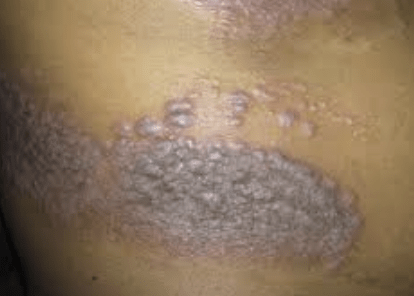Researchers reviewed the characteristics of biologics and small-molecule inhibitors in the treatment of psoriasis comorbidities to provide more definitive guidance for patients with distinct comorbidities. Approved treatments now include various inhibitors like tumor necrosis factor-α and interleukin-17. However, researchers noted that interleukin-17 treatments can exacerbate inflammatory bowel disease, and tumor necrosis factor-α inhibitors can be risky for those with specific comorbidities. The introduction of new biologic agents and inhibitors has transformed psoriasis treatment, but comorbid conditions can complicate therapy decisions. Dermatologists must consider the benefits and limitations of each treatment, as ongoing research will continue to refine therapeutic guidelines.
Reference: Jiang Y, Chen Y, Yu Q, Shi Y. Biologic and Small-Molecule Therapies for Moderate-to-Severe Psoriasis: Focus on Psoriasis Comorbidities. BioDrugs. 2023 Jan;37(1):35-55. doi: 10.1007/s40259-022-00569-z. Epub 2023 Jan 2. PMID: 36592323; PMCID: PMC9837020.









